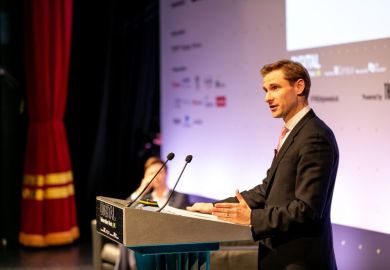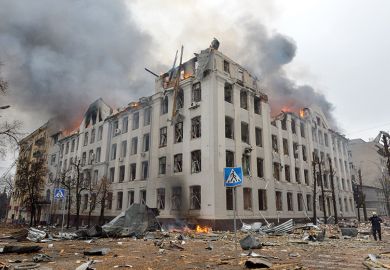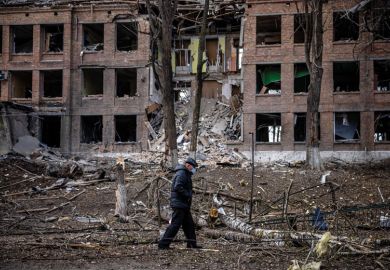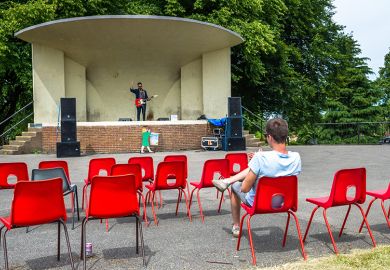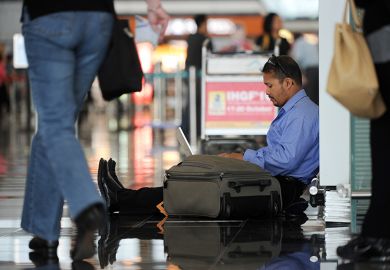Links between scholars are especially important to maintain in global times of tension like the standoff with Russia over the war in Ukraine, and academics’ nationality should not be conflated with the actions of their governments, according to the president of Harvard University.
Speaking at Imperial College London, Lawrence Bacow – whose mother, an Auschwitz survivor, and father were refugees from Europe – said that there were “responsibilities that we all bear” in terms of speaking out about what was happening in Ukraine.
However, he added that “scholarly relationships are important to maintain even, maybe especially, during times of tension between nations”, also saying that “there are things that we as universities can do that our governments sometimes find challenging or hard to do”.
Professor Bacow referred to scientists from the US and Soviet Union who had met during the Cold War over concerns about nuclear weapons and also how he witnessed the first group of Chinese scholars visiting the Massachusetts Institute of Technology – where he started his academic career – after relations between China and the US improved in the late 1970s.
He also said that “individuals are not necessarily responsible for the policies of their governments” and talked about how he was at college when students were protesting against the Vietnam War.
“Many of us were actively protesting [against] US involvement in Vietnam and I think history…has shown that our government was misguided in its efforts,” he said.
“But I would argue that the world would have been a poorer place if US students, US scholars, had been excluded from conversations with their colleagues around the world simply because they disagreed with the policies of their government.”
Professor Bacow, who was answering questions from Mary Ryan, Imperial’s interim vice-provost for research and enterprise, added that he thought it was “important not to conflate actions of a government [and the] nationality of the individuals”.
“It’s especially important now,” he said, adding that as well as the current situation in Ukraine there had been the issue of Chinese scholars in the US being caught up in political tensions between the US and China.
“Our government, for example, has viewed with suspicion many Chinese students or Chinese scholars and I think that’s exacted enormous costs on scholarly exchange but also upon individuals and I think that’s wrong.”
Meanwhile, Professor Bacow also defended Harvard’s approach to admissions in light of legal action that has been brought against the institution over its right to consider ethnicity a factor in considering applicants, a case that is set to be heard by the US Supreme Court.
He said decades of legal precedent had established that “we can consider race as one factor among many” when looking at admissions in the interests of “creating an environment in which every students’ opportunity to learn is enhanced by the students that they interact with”.
“Harvard or Imperial, any institution, would be really dull if everybody came from the same background and wanted to study exactly the same thing,” he argued, adding that another argument for affirmative action was that talent was evenly distributed among different communities but opportunity was not.
“I would argue that one of the goals of higher education, more broadly, is in fact to create social and economic mobility within a society and so we need to recognise that we have the capacity to alter the trajectory of people’s lives and, as we think about that, the admission process becomes one of whose lives are we going to alter,” he said.
Professor Bacow said that as a result, assessing potential should be about more than just test scores when it came to admissions, arguing that when employers hired people they always used interviews and other methods to look at candidates in the round.
“There isn’t a perfect algorithm, it involves judgement,” he said.
Register to continue
Why register?
- Registration is free and only takes a moment
- Once registered, you can read 3 articles a month
- Sign up for our newsletter
Subscribe
Or subscribe for unlimited access to:
- Unlimited access to news, views, insights & reviews
- Digital editions
- Digital access to THE’s university and college rankings analysis
Already registered or a current subscriber? Login

